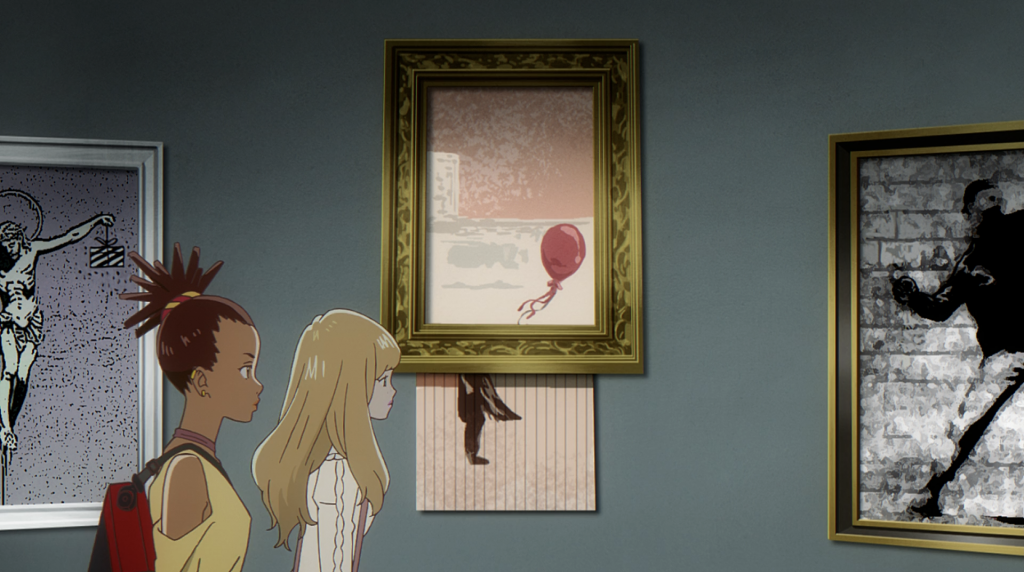封存于《卡罗尔与星期二》(キャロル&チューズデイ、CAROLE & TUESDAY)中的 Banksy 的 Love is in the Bin。(第 3 集 16:34)

他的世界与他的疯话
封存于《卡罗尔与星期二》(キャロル&チューズデイ、CAROLE & TUESDAY)中的 Banksy 的 Love is in the Bin。(第 3 集 16:34)

郁达夫在《春风沉醉的晚上》这样写春夏之交的季节:
天气好像变了。几日来我那独有的世界,黑暗的小房里的腐浊的空气,同蒸笼里的蒸气一样,蒸得人头昏欲晕。我每年在春夏之交要发的神经衰弱的重症,遇了这样的气候,就要使我变成半狂。所以我这几天来,到了晚上,等马路上人静之后,也常常想出去散步去。一个人在马路上从狭隘的深蓝天空里看看群星,慢慢地向前行走,一边做些漫无涯涘的空想,倒是于我的身体很有利益。当这样的无可奈何,春风沉醉的晚上,我每要在各处乱走,走到天将明的时候才回家里。我这样的走倦了回去就睡,一睡直可睡到第二天的日中,有几次竟要睡到二妹下工回来的前后方才起来。睡眠一足,我的健康状态也渐渐地回复起来了。
又到了快乐水的季节。
在《滚石》(Rolling Stone)杂志的编辑笔下,电视节目正变得越来越像是当代的音乐文化,每一个粉丝群体,在变得越发分裂和孤立。《滚石》2019 年 4 月刊 Editor’s Letter: Goodbye to ‘Game of Thrones’:
Game of Thrones had a global reach like nothing before it on TV. When you factor in illegal downloads and streams, the previous season was viewed by at least a billion people — meaning one of seven humans on the planet. “It does things you never expected TV to be able to do in terms of dragons flying and burning up entire armies, and zombies storming down a mountain,” says Alan Sepinwall, our chief TV critic, who has never missed an episode. “It’s viscerally thrilling in a way that almost nothing in TV has ever been before.”
When Game of Thrones debuted, back in 2011, TV was a totally different place. Netflix, Hulu and Amazon hadn’t begun to create their own programming, and the audience for great shows wasn’t splintered across niche genres and formats. It was actually possible (and enjoyable!) to keep up with GoT and other great shows like Homeland, Breaking Bad and Mad Men as they unfolded week to week. Now, dozens of original shows, docs and miniseries are dumped onto streaming services every month, and even the best of them reach smaller, fragmented audiences.
“TV is like the new music, and more than a little tribal,” says Rolling Stone entertainment editor Maria Fontoura. “Everyone has their favorite shows, and people judge each other’s taste by what they’re watching.”
李如一笔下的 Apple News+ 也在让杂志变得越来越像是音乐。《一天世界》博客 Apple News+:
苹果最落后的地方是反复讲各种「最好」和「最有创意」。汇集最好的杂志,找最好的创意人来做最好的电视节目。她们没有收到风,最好的时代已经结束了。没有最好,也没有更好,只有各种各样的好。不仅没有最好,甚至最火都已经没有了。已经不再是 for the rest of us 的苹果不懂这个。